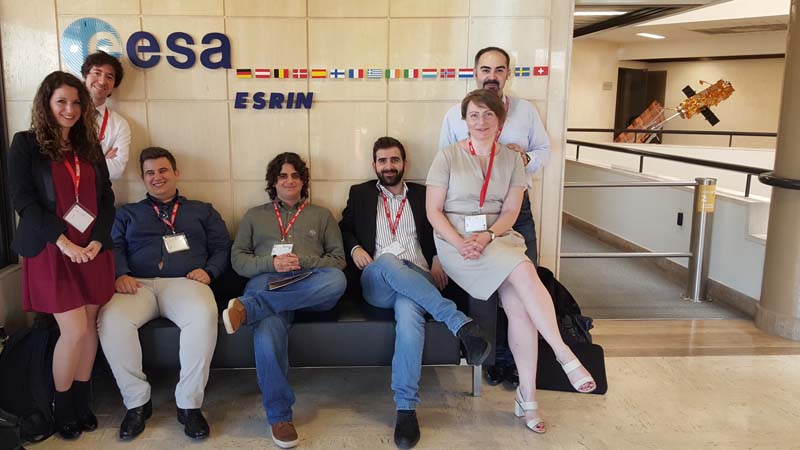Airgloss, a start-up company from ESA's Italian Business Incubation Centre, has adapted the air-quality monitor technology it developed for the International Space Station to work on the Earth for applications in businesses as well as homes and schools.
“We realised that the problem astronauts face with limited air exchange inside the International Space Station is also the case for many people inside buildings that have little to no ventilation,” explained Ciro Formisano from Airgloss.
“So we adapted the sensor system we had designed for the Station to work on Earth in a variety of settings, with web-based controllers to give timely warnings wherever you are.”
The ISS air quality monitoring products were designed and developed by Formisano and his team to check the air quality aboard the orbiting complex. ESA astronaut, Roberto Vittori, tested the unit during his third flight to the station in 2011.
The patented sensor acts like an ‘electronic nose’, sniffing the air and applying artificial intelligence to match the patterns it detects to the chemical signatures of a wide range of chemical compounds in its database. It then alerts users to deteriorating air quality and the presence of pollutants.
To adapt the technology and its application for terrestrial use, Formisano and his team set up Airgloss in 2013. The company gathered input from potential distributors and customers on what customers need to help develop a product line with three ranges.
The ProSense professional units are suitable both for use in existing buildings, such as schools, offices and factories, and new constructions. The range is designed to be combined with heating, ventilation and air conditioning units and help to improve energy efficiency as well as air quality.
Airgloss ComfortKit is designed for domestic consumers, combining thermostat functions with air-quality monitoring. A version has already been incorporated into devices such as cooking hoods, air purifiers and handheld detectors.
From space to Earth
Three separate sensor units were used around the Space Station over three weeks to monitor air quality and detect any problems caused by the failure of the air purification systems or contamination from the astronauts’ activities, such as laboratory experiments.
Formisao commented: “Developing devices for space was good training because it taught us how to make low-cost units that were robust enough to reach the Station and then survive in a critical environment, but also easy to use.
“Another benefit is that users have confidence in our product because of its space heritage and because we have worked with ESA and NASA. They trust space technology and are very impressed when they see the ESA space solutions logo on the units and the packaging – even in the US.”

AirGloss team - copyright AirGloss
When Airgloss moved into ESA’s incubation centre, the company was based in Lazio and had four employees. Today, it is headquartered in Rome and employs a staff of 12 and growing. The company has signed international distribution agreements in the US and Europe, with more planned in Canada and the Gulf area.
ESA’s 18 Business Incubation Centres have fostered more than 500 start-ups across Europe. Each year, more than 140 new start-ups are supported to develop companies and jobs in Europe, introducing new systems and services for terrestrial use based on the transfer of space technology and the use of satellite data.
Airgloss plans to widen its product range. Formisano sees many opportunities for the space sensing technology in the medical field and many more commercial devices, such as units for children’s rooms and sensor attachments for smartphones.
“My ultimate dream is to send a new generation of sensors back up onto the Space Station and repeat the success of the project that began our business,” Formisano concluded.
